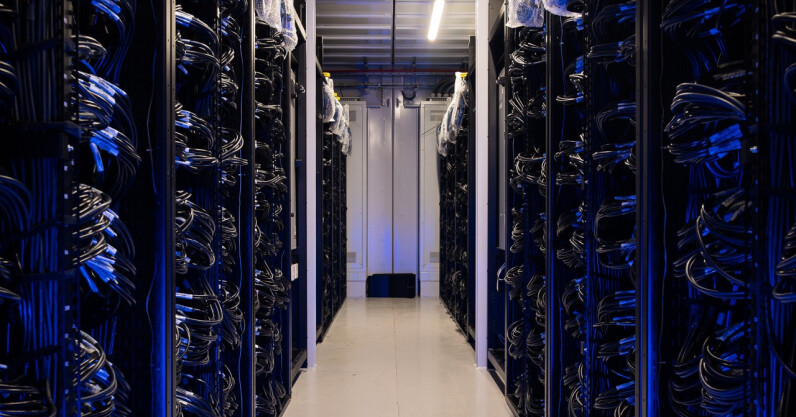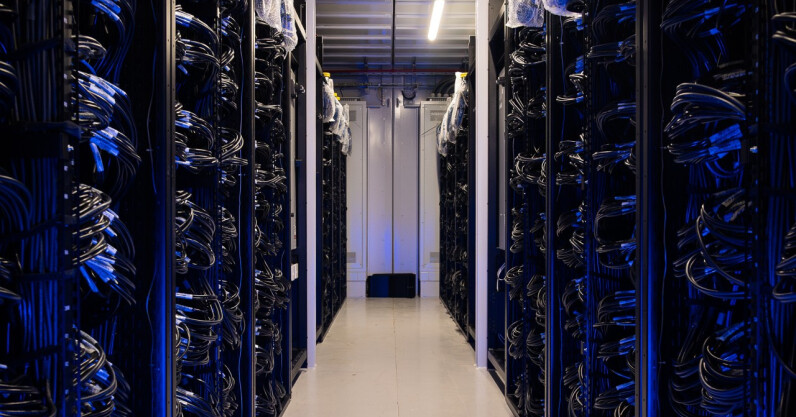Key Points
- The UK has launched its most advanced supercomputer, Isambard-AI
- Isambard-AI is the 11th most powerful supercomputer in the world
- It has a raw computing power of 216.5 petaflops
- The system is designed to run demanding artificial intelligence and scientific calculations
- Isambard-AI is more than 10x faster than the UK’s next-fastest supercomputer

A modern data center corridor with server racks on both sides. The servers are illuminated by blue LED lights, creating a dramatic technological atmosphere. The racks are filled with networking equipment and cables, primarily in black with blue accents. The corridor has white flooring and ceiling with fluorescent lighting running down the center. The cable management appears highly organized with numerous blue network cables neatly bundled.


Siôn Geschwindt
Introduction of Isambard-AI
The UK has just launched its most advanced supercomputer — the 11th most powerful in the world. Isambard-AI, hosted at the University of Bristol, officially went live this week. The machine was built by Hewlett-Packard Enterprises (HPE) using its Cray EX architecture and fitted with over 5400 NVIDIA Grace Hopper superchips.
Its raw computing power is measured at 216.5 petaflops, with a peak theoretical performance of 278.6 petaflops. For the uninitiated, one petaflop is equal to 1 quadrillion (1,000,000,000,000,000) calculations per second. The system is more than 10x faster than the UK’s next-fastest supercomputer — the Njoerd supercluster in London.
Global Rankings
While Isambard-AI has become the UK’s most powerful supercomputer, on the global stage, it faces stiff competition. According to the TOP500 rankings, the current world leader is El Capitan in the United States, which clocks in at a staggering 1,742 petaflops of actual performance.
Frontier and Aurora take second and third place, both American-built systems operating above the 1,000-petaflop threshold — the equivalent of one exaflop. The top three are the world’s only currently operational exascale supercomputers. Europe’s frontrunner, Germany’s JUPITER Booster, ranks fourth globally.
Applications and Future Plans
Some of the first applications of Isambard-AI include powering a prostate cancer detection system developed by University College London and helping Liverpool researchers discover greener, more sustainable industrial materials.
But Isambard-AI’s reign at the top may be short-lived. In June, Prime Minister Keir Starmer’s administration committed £750mn to a supercomputer in Edinburgh that aims to give the UK one of the world’s few exascale systems.
Source: thenextweb.com
